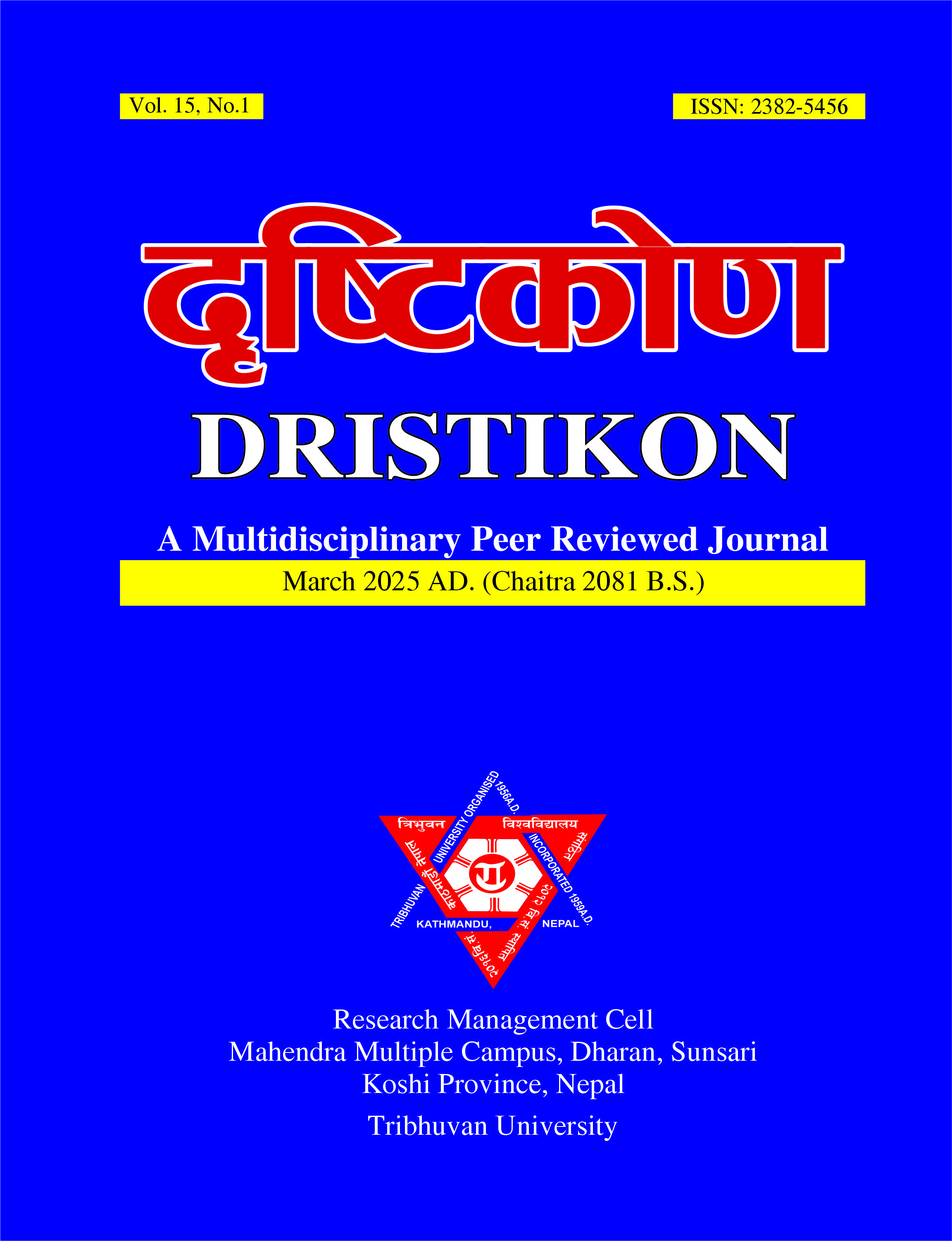Exploring Death in the Śrimad Bhāgavata Mahāpurāṇa
DOI:
https://doi.org/10.3126/dristikon.v15i1.77132Keywords:
Ᾱtmā, bhakti, detachment, impermanence mokṣaAbstract
The Śrimad Bhāgavata Mahāpurāṇa, one of the most revered texts in Hindu philosophy, presents a profound exploration of death as a transformative and instructive phenomenon. Rather than perceiving death as an end, the Purāṇa portrays it as a gateway to spiritual awakening and liberation (mokṣa). Through vivid narratives, philosophical dialogues, and symbolic interpretations, it emphasizes the impermanence of material existence and the eternal nature of the soul (ātman). Death is depicted not as a moment of despair but as an opportunity for self- realization and surrender to the divine will, embodied in devotion (bhakti) to Śṛī Kṛṣṇa. This exploration reveals death's role in encouraging detachment, fostering inner resilience, and aligning human life with ultimate spiritual goals, offering timeless guidance on embracing mortality with grace and wisdom. The major of this study are the objectives to explore the significant of death in the Śrimad Bhāgavata Mahāpurāṇa; to explicate the different types of death described in the text; and to evaluate the preparation of death in the Śrimad Bhāgavata Mahāpurāṇa. The researcher uses the theory of death by Niruben Amin for the analysis of the text. The theorist argues that all creatures have the fear of death in life. The main conclusion drawn from this investigation is the fear of death is ultimately overcome through devotion (bhakti) and the realization of the eternal nature of the soul (ātman). By cultivating detachment from the material world and surrendering to Śṛī Kṛṣṇa, individuals transcend fear, embracing death as a natural transition toward spiritual liberation (mokṣa).
Downloads
Downloads
Published
How to Cite
Issue
Section
License
© Research Management Cell, Mahendra Multiple Campus, Dharan

